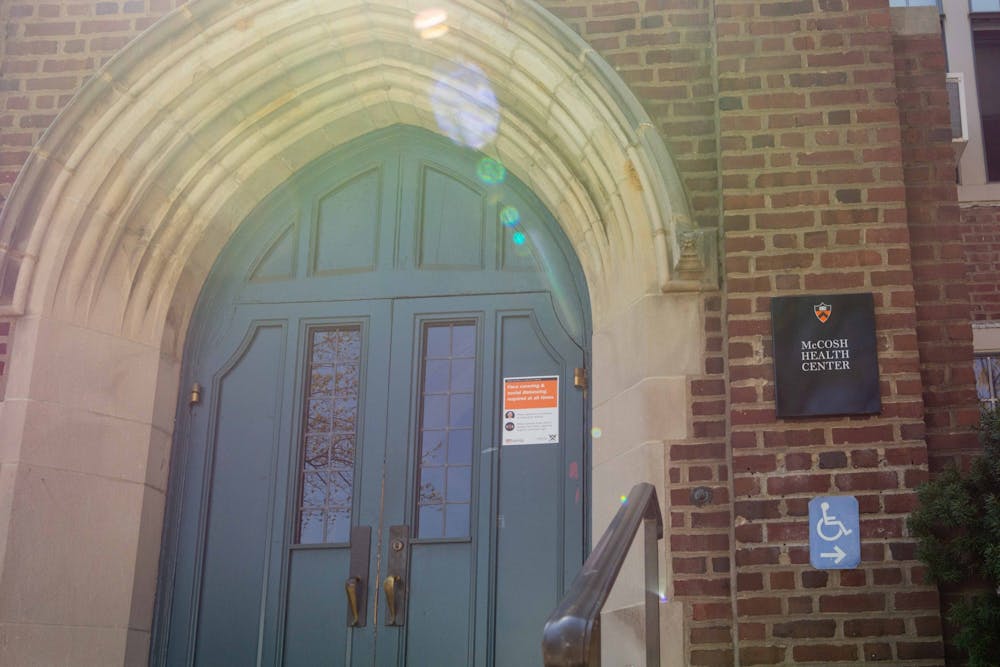After almost two years of infrequent trips outside our homes and social distancing, our immune systems are readjusting to pre-pandemic levels of interaction and, by default, to daily pathogen transmission. We’ve all heard of it — the Princeton plague — the scientifically unnamed upper respiratory tract viral infection that has affected a large proportion of people on campus. Symptoms include coughing, runny nose, sore throat, headaches, fatigue, and fever.
We’ve all heard the coughing during our classes — many of us know someone who got the plague, or we got it ourselves at least once in the weeks leading up to (and during) midterms. Although not everyone experiences the same severity of symptoms upon contracting the Princeton plague, many of us were hit hard and found it difficult to get out of bed and keep up with our academic demands.
Still, Princeton stops for no one, and with classes continuing and the dread of falling behind looming, we went to class anyway. The problem is, we have no choice but to go to classes even while we are sick. As one of my professors affirmed, the University does not require instructors to provide us with virtual options when we are ill. This was corroborated by a student who reached out to their residential college Dean to request the ability to Zoom into class. The only exception is if a student is required to quarantine due to COVID-19.
While our Directors of Student Life, Directors of Studies, and some professors are supportive in helping us secure extensions and accommodations, this is not enough. The University must recognize and fully acknowledge the importance of prioritizing health beyond the pandemic. They must extend some of the same centralized accommodations and flexibility offered to those who test positive for COVID-19 to those who are affected by other illnesses. The first step might very well be to give those of us with medical documentation verifying we are sick the ability to Zoom into classes.
My freshman year writing seminar — WRI 164 Contagion — explored the ways in which infections spread both biologically and socially. Ironically, I took this class during the pandemic, so my peers and I were able to experience in real time (to our horror) the process through which COVID-19 was initially identified, transmitted over the globe, and portrayed in the media.
While engaging with the texts required for class and through my own research, I became increasingly interested in the human aspect of contagion — the way we extrapolate outbreaks into our discourse. The uncertainty and fear of something we don’t understand compels us to create narratives and institute policies that ameliorate the unknown. While caution towards COVID-19 is necessary, the relative nonchalance and discrepancies in treatment with which other potentially serious diseases are approached dangerously undermines our individual and community health.
COVID-19 has exceeded all medical expectations and imagined assurances of safety. It’s been nearly two years since it first emerged, and still, we are struggling to understand the full range of short- and long-term effects it has on our bodies. Many of us have been personally affected by the virus, know someone who has been, and/or lost a loved one to it. COVID-19 remains a dangerous and frightening virus.
But this doesn’t mean that other viruses aren’t scary and can’t also have potentially serious consequences on our health. Preliminary data compiled by the CDC from the 2019-20 flu season finds that an estimated 380,000 people were hospitalized and 20,000 died because of the flu. University Health Services offers the flu vaccine free of charge, which greatly reduces the risk of acquiring and transmitting this virus, yet this does not completely eliminate the risk of infection. This also doesn’t mean we are protected from other viruses and bacteria.

Approximately 95 percent of campus is vaccinated against COVID-19, but we still have robust policies in place to make sure that those who test positive can be quickly identified and quarantined. With COVID-19, individual and community health are priorities: students are allowed to Zoom into class to protect others from getting infected while they recover.
The return to in-person instruction has been refreshing and much needed after a depersonalizing and mentally taxing year of online school, but the realities of in-person require that we acknowledge how our spaces facilitate the spread of disease. Even though masks reduce the spread of infections, we often find ourselves in closed spaces which are sometimes poorly ventilated and lack adequate spacing between individuals. For those of us sitting next to people who are sick, it seems inevitable that we too will contract whatever they have.
So yes, getting our flu vaccines and continuing to mask up are instrumental to maintaining the health of our campus, but they will not stop the natural transmission of viruses and bacteria. We will get sick and some of us will encounter medical emergencies.
Academic rigor is a glowing hallmark of this school, but if the ongoing pandemic has taught us anything, it is that academics are not everything; we cannot and should not continue to normalize practices that glorify work over health. We should not be risking our own well being and that of our peers because of decentralized policies that fail to acknowledge the toll of non-COVID illnesses on our academic presence and productivity. We should not be stressed about attending classes when technology readily allows us to safely remain engaged with our academics while we recover. COVID-19 is a serious virus with potentially grave health consequences but the failure to regard other illnesses with equivalent caution, preparation, and urgency disregards their impact on our health.

Ana Blanco is a junior majoring in Public and International Affairs at Princeton. She can be reached at ab53@princeton.edu.








